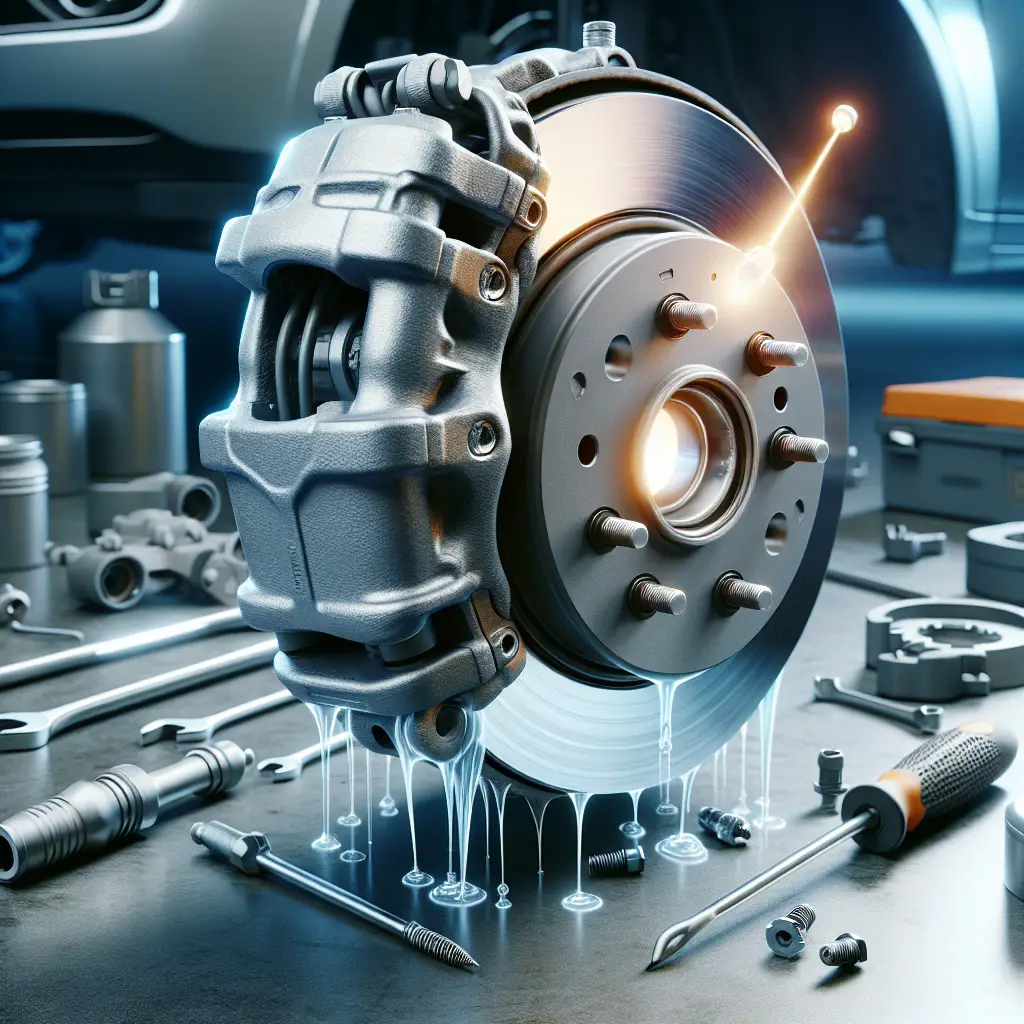How to Stop a Brake Caliper from Leaking
Brake calipers are the critical components of your vehicle’s braking system that press the brake pads against the rotors to slow or stop your vehicle. However, when they begin leaking, they can cause your brakes to malfunction, putting your safety and that of others at risk. Understanding how to address a leaking brake caliper is essential for any driver, whether you’re a DIY enthusiast or simply looking to be better informed before visiting the mechanic.
Identifying a Leak in Your Brake Caliper
Before you proceed, it’s important to confirm that your brake caliper is indeed the source of the leak. You may notice a decrease in braking power, a spongy brake pedal, or fluid pooling near the wheels. Brake fluid is typically clear to yellowish in color, and its petroleum-like odor is usually distinctive.
Once a leak is suspected, locate it by inspecting the caliper assembly for wetness or signs of fluid seepage. It’s often around the piston where the brake hose connects or the bleeder valve.
What Causes Brake Caliper Leaks?
Brake calipers may leak due to several reasons:
- Worn Seals: The seals inside the caliper can wear out over time or due to excessive heat and pressure.
- Corrosion: Road salt and dirt can lead to caliper corrosion, which might compromise the sealing surfaces.
- Damaged Piston: A scratched or pitted piston can tear the seal and allow brake fluid to escape.
Knowing the cause of the leak is key to fixing the issue properly.
How to Fix a Leaking Brake Caliper
Fixing a leaky brake caliper involves several steps:
Step 1: Safety First
Before you begin, ensure your vehicle is parked on a level surface and you have engaged the parking brake. Wearing safety glasses and gloves is advised since brake fluid can be corrosive.
Step 2: Gather Your Tools and Parts
You’ll need:
– New caliper seal kit or replacement caliper
– Brake fluid
– Brake cleaner
– Wrench set
– Jack and jack stands
– A catch pan for fluid
Step 3: Remove the Wheel
Use a jack to lift the vehicle and place it securely on jack stands. Then, remove the wheel to access the brake caliper.
Step 4: Inspect the Brake Caliper
Thoroughly inspect the caliper to locate the source of the leak. Determine if it’s repairable (like a worn seal) or if you need a full caliper replacement.
Step 5: Disassemble the Caliper
If the seals are the issue, you will need to remove the caliper from the vehicle and disassemble it. Take out the brake pads, unscrew the caliper from the suspension, and remove the piston from the caliper.
Step 6: Replace the Seals
Carefully remove the old seals, clean the caliper and piston with brake cleaner, and instal the new seals from your seal kit. Make sure everything is lined up properly to avoid another leak.
Step 7: Reassemble and Bleed the Brakes
After replacing the seals, reassemble the caliper, reattach it to its mount, and replace the brake pads. Then, you’ll need to add new brake fluid and bleed the brakes to remove any air that may have entered the system.
Step 8: Test Your Work
Once everything is reassembled, lower the vehicle and conduct a test drive to ensure there are no leaks and that the brake system is performing as expected.
Should You Repair or Replace?
Sometimes, even with new seals, a caliper may continue to leak because of corrosion or a worn piston. In such cases, replacement with a refurbished or new caliper is the best option. It’s also important to consider that brake components should always be replaced in pairs to ensure balanced braking.
Consult with a service manual specific to your vehicle or seek a professionally trained mechanic if you’re uncertain about proceeding with repairs. Sites like Car and Driver and Motor Trend often offer great maintenance tips, and they can help you gauge when a mechanic’s expertise is needed.
Maintenance Tips to Prevent Future Leaks
Preventative measures are key to avoiding future brake caliper leaks:
- Regularly check your brake fluid levels and inspect the brake system for any signs of moisture or wear.
- Have your vehicle’s brakes checked by a professional during your regular oil change or maintenance periods.
- Avoid harsh driving habits that cause excessive wear and tear on the brake system.
Seek Professional Help if Necessary
While many car enthusiasts are capable of performing brake repairs, there is no shame in seeking professional help, especially when it comes to brakes, as they are critical for your safety on the road. If you ever doubt your abilities, consult a professional. Networks such as the National Institute for Automotive Service Excellence (ASE) can help you find qualified technicians.
Stopping a brake caliper from leaking can be an involving process, but with the right tools and a bit of knowledge, it is within your grasp. Always prioritize safety and ensure your repairs are thoroughly tested before considering the job complete. Keeping a close eye on your vehicle’s braking system will not only give you peace of mind but also ensure the safety of everyone on the road.
Remember, your vehicle’s performance is a direct result of your care and attention. By addressing issues like a leaking brake caliper promptly and effectively, you ensure that your travels are not just enjoyable, but safe too.

